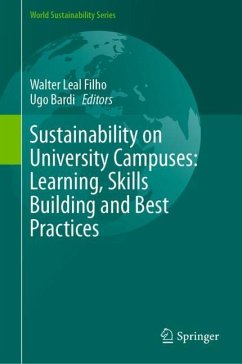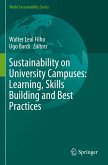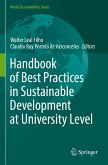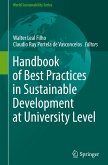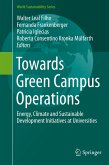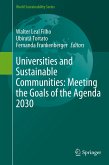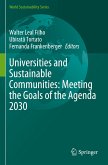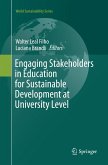The implementation of sustainability initiatives on campuses is an essential component of promoting sustainability in the higher education context. In addition to reflecting an awareness of environmental issues, campus programmes demonstrate how seriously universities take sustainability at the institutional level.
There is a lack of truly interdisciplinary publications that comprehensively address the issue of campus greening, and there is an even greater need for publications that do so at a truly international level. This book meets these needs. It is one of the outcomes of the "Second Symposium on Sustainability in University Campuses" (SSUC-2018), which was jointly organised by the University of Florence (Italy), Manchester Metropolitan University (UK), the Research and Transfer Centre "Sustainable Development and Climate Change Management" and the "European School of Sustainability Science and Research" at the Hamburg University of Applied Sciences (Germany), in cooperation with the Inter-University Sustainable Development Research Programme (IUSDRP).
The book showcases examples of campus-based research and teaching projects, regenerative campus design, low-carbon and zero-carbon buildings, waste prevention, and resilient transport, among others. Ultimately, it demonstrates the role of campuses as platforms for transformative social learning and research, and explores the means by which university campuses can be made more sustainable.
The aims of this publication are as follows:
- to provide universities with essential information on campus greening and sustainable campus development initiatives from around the world;
- to share ideas and lessons learned in the course of research, teaching and projects on campus greening and design, especially successful initiatives and good practice; and
- to introduce methodological approaches and projects intended to integrate the topic of sustainable development in campus design and operations.
This book gathers contributions from researchers and practitioners in the field of campus greening and sustainable development in the widest sense, from business and economics, to the arts, administration and the environment, and hailing from Europe, Latin America, North America and Asia.
There is a lack of truly interdisciplinary publications that comprehensively address the issue of campus greening, and there is an even greater need for publications that do so at a truly international level. This book meets these needs. It is one of the outcomes of the "Second Symposium on Sustainability in University Campuses" (SSUC-2018), which was jointly organised by the University of Florence (Italy), Manchester Metropolitan University (UK), the Research and Transfer Centre "Sustainable Development and Climate Change Management" and the "European School of Sustainability Science and Research" at the Hamburg University of Applied Sciences (Germany), in cooperation with the Inter-University Sustainable Development Research Programme (IUSDRP).
The book showcases examples of campus-based research and teaching projects, regenerative campus design, low-carbon and zero-carbon buildings, waste prevention, and resilient transport, among others. Ultimately, it demonstrates the role of campuses as platforms for transformative social learning and research, and explores the means by which university campuses can be made more sustainable.
The aims of this publication are as follows:
- to provide universities with essential information on campus greening and sustainable campus development initiatives from around the world;
- to share ideas and lessons learned in the course of research, teaching and projects on campus greening and design, especially successful initiatives and good practice; and
- to introduce methodological approaches and projects intended to integrate the topic of sustainable development in campus design and operations.
This book gathers contributions from researchers and practitioners in the field of campus greening and sustainable development in the widest sense, from business and economics, to the arts, administration and the environment, and hailing from Europe, Latin America, North America and Asia.

